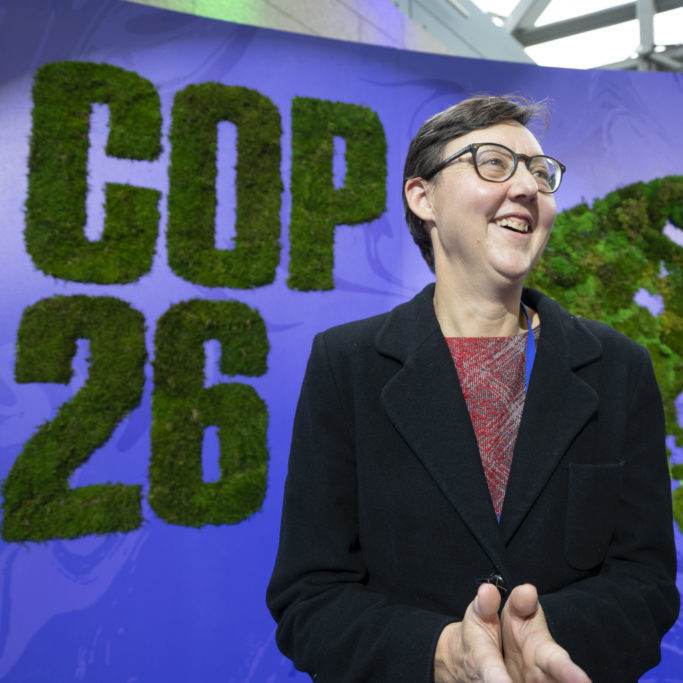COP27 Sharm El Sheikh
The UN Climate Change Conference 2022
The UN Climate Change Conference of the Parties (COP) is a global summit on climate change. The term ‘parties’ refers to countries. In 2022 it was the 27th time that countries came together to discuss every aspect of climate change, which is why it is called COP27.

What was COP27?
The world’s most significant summit on climate change is the UN Climate Change Conference of the Parties, otherwise known as COP.
This conference is attended by representatives of the countries that have ratified the United Nations Framework Convention on Climate Change (UNFCCC) – a treaty agreed in 1994.
COP takes place each year unless the Parties to the Convention agree otherwise. 2022 saw the 27th occurrence of the conference, which is why it’s referred to as COP27.
The COP comes together to review the implementation of the UNFCCC, which has the ultimate goal of limiting human impact on our climate system. One key task is to monitor each country’s progress towards their individual targets, known as Nationally Determined Contributions.
When and where was COP27?
COP27 took place in the coastal town of Sharm al-Sheikh, on the Sinai Peninsula in Egypt, from 6th – 18th November, 2022.
The location of COP28 in 2023 was in the UAE, from 6th – 17th November, 2023, and COP29 will be held in Baku, Azerbaijan in November 2024.
Why Egypt?
Officially, the COP takes place in Bonn, Germany, unless a member country offers to host the event instead. This means that in practice, it tends to move regularly around the different global regions recognised by the UN.
There are those who hoped that hosting COP27 in Egypt would give a more powerful voice to all African countries, who are among those most affected by climate change. One reported criticism of Glasgow’s COP26 was that it was too weighted towards more developed countries and the actions they could take to limit their emissions.
Egypt planned on COP27 being a “real African conference” with President Abdel Fattah el-Sisi saying in a speech at the COP26 in Glasgow 2021 that they will host COP27, “on behalf of African nations”.
Egypt’s Minister of Environment, Yasmine Fouad, thanked the UK for its efforts and initiative in COP26, promising to continue the hard work and to build bridges of cooperation, remove differences and find common ground.
“Egypt takes it upon itself to make every effort to achieve success in COP27 in facing this challenge that threatens the whole world, and will spare no effort to make COP27 hospitable and constructive for all,” she said.
Fouad added that COP27 would help African countries and the most affected nations to swiftly begin their measures to confront climate change and adapt to its impact.
Nationally Determined Contributions
Every country attending COP will determine, plan and regularly report on their climate change adaptations through their Nationally Determined Contributions (NDCs).
NDCs are non-binding plans made by countries around the world, which outline their work towards targets for emission reductions and other measures that were set out in the Paris Agreement.
The goals laid out in each country’s NDC include a commitment to working towards being climate neutral by 2050, limiting global warming to well below 2 degrees celsius and increasing efforts to limit it to 1.5 degrees, as well as reductions in emissions of greenhouse gases.
Individual countries decided their own contributions to the aims of the Paris Agreement, though Article 3 requires NDCs to be “ambitious efforts” towards “achieving the purpose of this Agreement” and to “represent a progression over time”.
Nations were expected to update and report on their NDCs before COP27.
Practical Action’s role at COP27
Our role at the COP climate conferences is to amplify the voices of the people we work with, and to share what we have learned from those who are already adapting to extreme climate events. Our staff are often part of national delegations, directly influencing the negotiations. We work to ensure the most vulnerable are heard and advocate for more support and finance to be directed to meeting their needs.
We provide evidence and technical support to governmental delegations, participate in events, and speak to the media. We showcase bottom-up adaptive work by people on the front line of climate change, which works with nature, not against it. We call for a focus on the approaches and resources needed to scale change and enable communities to adapt and deal with the loss and damage that they are already experiencing.
Our experience in helping people on the front line of climate change to adapt sustainably to the new challenges they face has never been more relevant, nor more necessary. Developing nations are disproportionally impacted by climate change so our aim is to ensure that no one is left behind. We bring a diversity of views and expertise from our work with communities across South Asia, Latin America and Africa.
We will continue to work with many others to support, demonstrate and scale the solutions required for positive futures for the people on the front line of climate change and get finance redirected to climate solutions that deliver for people and nature.
Find out more about what Practical Action brought to the COP27 conference by following the link below.
Practical Action at COP27